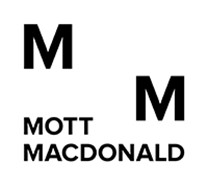Mott MacDonald: an evidence-based approach to wellbeing
By identifying its greatest wellbeing risks, Mott MacDonald can take a more proactive, preventative approach to keeping its people happy, healthy and safe.

About the company
Mott MacDonald is a global engineering, management and development consultancy. It is the largest wholly employee-owned firm of its kind.
Colleagues work on projects around the world to improve health, education, life chances, and to recover from natural disasters like flooding and earthquakes.
Within the EUNA region (encompassing the UK, mainland Europe including Ireland and the Nordic states, Turkey, and wider Anatolia) the company has 7553 colleagues. Within the UK specifically, it has 6713 colleagues.
The issue
Its wellbeing strategy had to evolve fast to deal with the ongoing psychological and physical legacy of the Covid pandemic. Over two disruptive years from 2020, its main emphasis was on reactive intervention, prioritising provision of individual support, resources and benefits when deterioration of an employee’s wellbeing had already occurred.
It became clear that the company needed to invest in more preventative and proactive initiatives to yield the greatest returns. By taking an evidence-based approach based on the data it had available, and by focussing on demographic groups which may be more vulnerable, it could reduce the risk of trigger scenarios. Using one example to illustrate its approach, here’s how it was done.
The data
According to the company’s safety and wellbeing reporting for 2023, musculoskeletal conditions (MSK) are the highest reported risk at Mott MacDonald for work-related ill health. According to its HR sickness absence reporting, MSK is the second highest risk after psychological issues, although the two are linked.
In 2023, there were 83 days lost due to musculoskeletal health across the business. Its occupational health providers in the UK had 305 MSK management referrals based on both HR referring and escalation following a triage call, between January 2022 and December 2023.
503 positive interventions submitted by colleagues in 2023 also mentioned some form of MSK pain or problems.
What they did
As a result, one of its successful educational campaigns of 2023 focused on musculoskeletal issues. MSK conditions can significantly limit mobility and dexterity, leading to early retirement from work, lower levels of wellbeing and reduced ability to participate in society. The data indicated a widespread risk at Mott MacDonald, potentially exacerbated by the introduction of agile working (making workstation set-up harder to monitor).
To maximise engagement with the campaign, it used every platform available to share key messages, including Viva Engage (Yammer), the intranet, and unit/divisional/team internal communications. It also leveraged the influence of its large network of wellbeing champions and Mental Health First Aiders, supporting them to hold local office musculoskeletal-themed events (such as yoga and massage sessions).
It encouraged some of its senior leaders to share their own stories of managing MSK problems and held a clinician-led back pain themed webinar for colleagues, covering causes, treatments and prevention. Attendees were also reminded of the importance of regular Display Screen Assessments (DSE).
The outcome
Almost 500 colleagues registered to attend its ‘Understanding back pain’ webinar, and in feedback the event received an average rating of 4.81 out of 5 stars. In July 2023 there were 917 unique views of MSK information on its intranet pages and 911 views of its Viva Engage (Yammer) posts.
The company’s sickness absence decreased in 2023 to an average of 4.5 days per employee – compared to 5.15 days per employee in 2022. It also saw an increase in DSE training completed by colleagues in 2023 – 20,762 completions compared to 15,001 in 2022.
Conclusion
Recognising that a wellbeing strategy will only make an impact if it’s truly relevant to the people it’s created for, its approach of using multiple data sources (including positive interventions, health assessments, employee assistance programme metrics and sickness absence reports) to develop a series of targeted awareness-raising campaigns and a suite of support options is already making a positive difference.
Mott MacDonald believe that these organisation-wide early interventions are the most effective way to empower, protect and support the health and wellbeing of its people.
Next steps
- Read our report Prioritise People: The Next Step, a practical guide on how organisations of all sizes can measure health and wellbeing initiatives.

TRANSFORMING MENTAL HEALTH AND WELLBEING IN YOUR WORKPLACE

Related content
World Mental Health Day 2024: Top Five Wellbeing Resources
At Business in the Community (BITC), we are committed to transforming mental health and wellbeing at work. Our initiatives aim to unlock the full value of employee wellbeing.
Creating a menopause-inclusive culture in the workplace
Read how important it is for business to recognise menopause and provide a menopause-inclusive culture in the workplace.
Suicide Prevention During the Cost-of-Living Crisis
Louise Aston, Wellbeing Director, Business in the Community, on the crucial role employers can play in mitigating the risks of suicide.
